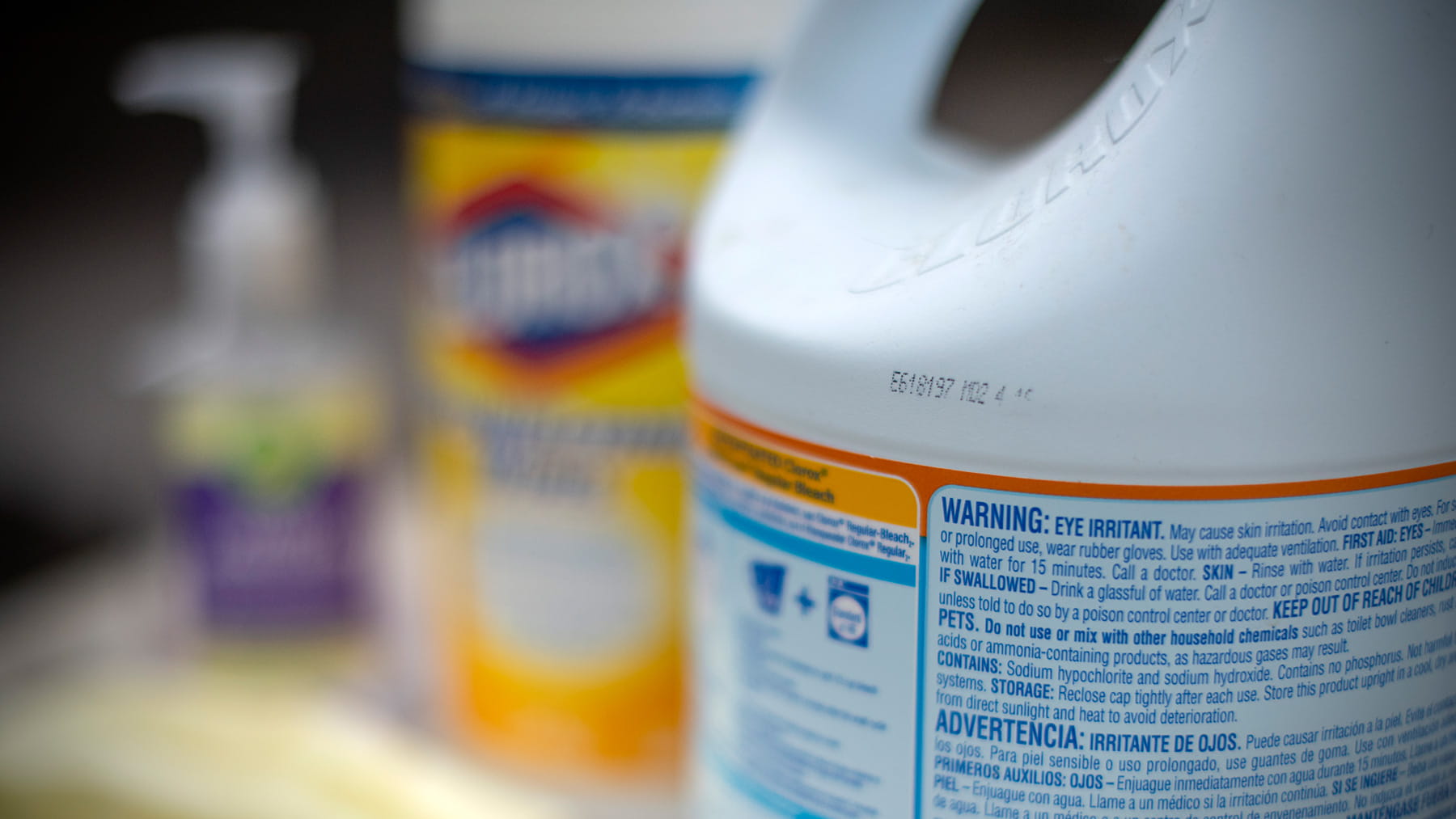Take precautions with disinfectants and don’t consume them

Editor’s note: As what we know about COVID-19 evolves, so could the information contained in this story. Find our most recent COVID-19 blog posts here, and learn the latest in COVID-19 prevention at the Centers for Disease Control and Prevention.
While people are being told there’s no antiviral drug to prevent or treat COVID-19, they’re simultaneously learning that disinfectants can kill the coronavirus.
But as disinfectants can kill a virus on surfaces, they can harm and kill people when improperly used or ingested, says Avraham Cooper, MD, a pulmonologist and intensive care physician at The Ohio State University Wexner Medical Center and assistant professor in the Ohio State College of Medicine. “They’re dangerous, so be sure to take precautions when using them.”
Cooper specializes in the care of patients with asthma but also treats a wide variety of general pulmonary issues. He cares for patients who’ve been hospitalized with respiratory illnesses as well as those who are critically ill in the intensive care unit, including those impacted by COVID-19.
There are two ways that COVID-19 and other respiratory viruses can spread, Cooper says. One is through respiratory droplets, or mucous membrane exposure. The other is by picking up the virus from a surface. That’s the purpose of using disinfectants—to reduce the risk of picking up the virus from a surface.
The Centers for Disease Control has ratings for ones that are good to kill viruses, and instructions for how long to leave the disinfectant on surfaces to kill the virus. But users should administer the products appropriately and be careful to wipe up the remnants of any surface disinfectant.
The CDC reported that poison control centers in the United States experienced a 20% increase in calls from January through March, compared to 2019, for exposure to chemicals in cleaning products.
“Ingesting these in any way is absolutely dangerous and shouldn’t be done. They’re meant for cleaning surfaces,” Cooper says.
For instance, people might spray surfaces then place food on those surfaces. That should not be done, as disinfectants can wreak havoc on your body. Consumption of bleach and isopropyl alcohol can lead to kidney failure and liver failure, among other life-threatening ailments.
“Bleach itself is extremely toxic if it’s ingested,” Cooper says. But alcohol and bleach are acceptable chemical disinfectants, if used appropriately.
But as disinfectants can kill a virus on surfaces, they can harm and kill people when improperly used or ingested, says Avraham Cooper, MD, a pulmonologist and intensive care physician at The Ohio State University Wexner Medical Center and assistant professor in the Ohio State College of Medicine. “They’re dangerous, so be sure to take precautions when using them.”
Cooper specializes in the care of patients with asthma but also treats a wide variety of general pulmonary issues. He cares for patients who’ve been hospitalized with respiratory illnesses as well as those who are critically ill in the intensive care unit, including those impacted by COVID-19.
There are two ways that COVID-19 and other respiratory viruses can spread, Cooper says. One is through respiratory droplets, or mucous membrane exposure. The other is by picking up the virus from a surface. That’s the purpose of using disinfectants—to reduce the risk of picking up the virus from a surface.
The Centers for Disease Control has ratings for ones that are good to kill viruses, and instructions for how long to leave the disinfectant on surfaces to kill the virus. But users should administer the products appropriately and be careful to wipe up the remnants of any surface disinfectant.
The CDC reported that poison control centers in the United States experienced a 20% increase in calls from January through March, compared to 2019, for exposure to chemicals in cleaning products.
“Ingesting these in any way is absolutely dangerous and shouldn’t be done. They’re meant for cleaning surfaces,” Cooper says.
For instance, people might spray surfaces then place food on those surfaces. That should not be done, as disinfectants can wreak havoc on your body. Consumption of bleach and isopropyl alcohol can lead to kidney failure and liver failure, among other life-threatening ailments.
“Bleach itself is extremely toxic if it’s ingested,” Cooper says. But alcohol and bleach are acceptable chemical disinfectants, if used appropriately.
Here are a few general tips for using disinfectants:
- Always read and follow directions on the label.
- Use only water at room temperature for dilution (unless stated otherwise on the label).
- Avoid mixing chemical products.
- Wear eye and skin protection (avoid touching the eyes).
- Ensure adequate ventilation.
- Store chemicals out of the reach of children.




